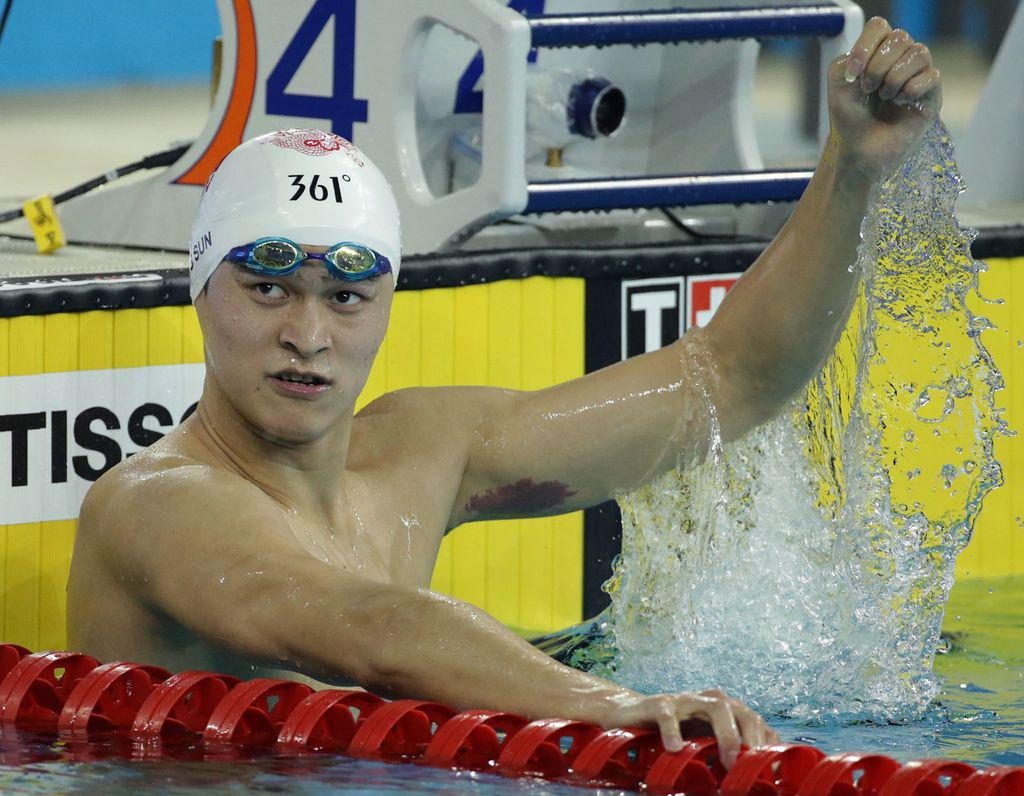Controversial swimmer, Sun Yang, who participated in the 2012 London Olympic games and the 2016 Rio Games, has been banned from the sport for eight years. The ban will likely end the 28-year-old’s career.
On February 28, 2020 the Court of Arbitration for Sport (CAS) found that Sun refused to cooperate with authorities when they came to collect blood and urine samples for drug testing back in September 2018. The sample was destroyed with a hammer by one of Sun’s security guards after Sun’s mother instructed him to do so.
Initially, despite Sun’s mother and guard’s controversial actions, FINA (International Swimming Federation), gave Sun a warning. During the initial trial for this case, Sun stated he refused to give samples because the representatives from the World Anti-Doping Agency lacked appropriate credentials to let him know they were there to collect blood and urine samples from him.
The judge for the trial—which was marred with translation issues from the start—agreed with Sun’s testimony.
Following the warning, Sun was allowed to continue swimming, and he went on to win world championship medals in 200-meter and 400-meter freestyle events in 2019.
For the latest trial, CAS overturned the initial ruling by stating, “The athlete failed to establish that he had a compelling justification to destroy his sample collection containers and forego the doping control when, in his opinion, the collection protocol was not in compliance.”
The three judges agreed to enact the ban in a unanimous verdict.
The courts ruled Sun can keep his 2019 world titles as he tested negative for doping prior to the world championships.
Following the ruling, Sun stated he plans to appeal.
“I firmly believe in my innocence. I was shocked, angry and could not understand after receiving the ruling,” Sun said on Weibo.
The China Swimming Association added that Sun is “further pursuing his legal rights through litigation.”
Sun, who is the first Chinese swimmer to ever medal at the Olympics, is no stranger to controversy. In 2014, he was banned for three months after testing positive for trimetazidine, a classified stimulant at the time. Sun stated he’s been taking the drug since 2008 to treat a heart condition. While he could have filed a medical exception, he elected not to do so.
Across the sport of swimming, several athletes consider Sun to be a “drug-cheat” starting at the 2016 Rio Olympic Games. During the 2019 world champions, South African and Australian swimming Chad le Clos and Mack Horton refused to stand next to Sun on the podium.
Following the February 28 verdict banning Sun, Horton received death threats on social media.
“I think, regardless of the outcome, it was always going to be a statement to the world, and my stance has always been about clean sport, never about nations or individuals,” Horton said February 29 on Seven Network television.
“…like many other clean swimmers, I have raced against Sun Yang and ‘lost’. Drug cheats have no place in sport and we need the governing bodies to reconsider the damage he has done to our great sport – and to the results / careers of many other clean swimmers,” le Clos said on Twitter.
Like many other clean swimmers, I have raced against Sun Yang and “lost”. Drug cheats have no place in sport and we need the governing bodies to reconsider the damage he has done to our great sport – and to the results / careers of many other clean swimmers #time4change
— Chad Le Clos (@chadleclos) February 28, 2020
Sun is one of China’s most popular athletes currently. He can now begin the appeals process. However, the ban currently means he cannot defend his Olympic titles at the 2020 Tokyo Games.
—-Olivia Murray

